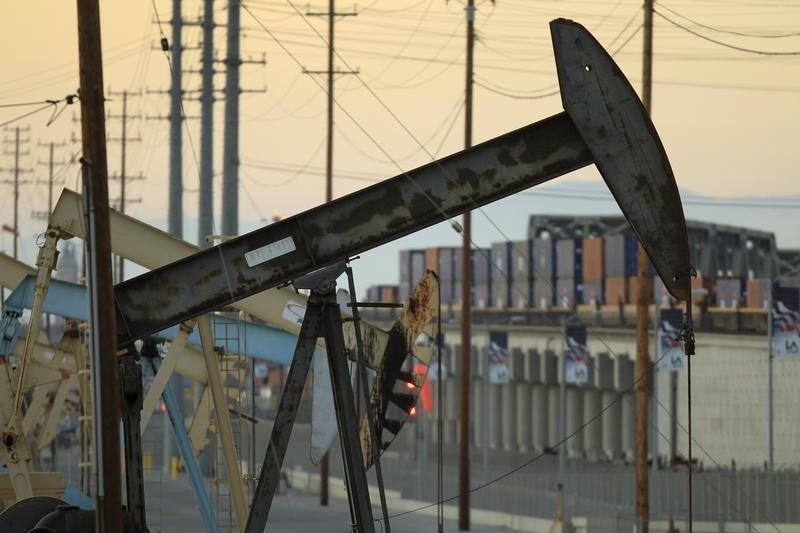* Saudis to propose 1 mln bpd output cut for 2016 - report
* Saudi oil source tells Reuters report is "baseless"
* Iran oil minister dismisses production limit on Tehran
* Britain starts Syria military action by bombing oil fields (Adds analyst comment, updates prices)
By Karolin Schaps
LONDON, Dec 3 (Reuters) - Oil prices rose from near-2015 lows on Thursday after a report sourced to a senior OPEC delegate said Saudi Arabia would next year propose a deal to balance oil markets with non-OPEC help.
Benchmark Brent crude futures LCOc1 were up $1.01, or 2.4 percent, at $43.50 a barrel by 1320 GMT. U.S. crude CLc1 was trading 76 cents higher at $40.70 a barrel, after sinking below $40 on Wednesday.
Saudi Arabia, which has so far resisted any market intervention to prop up oil prices, has proposed that the Organization of the Petroleum Exporting Countries (OPEC) cut output by 1 million barrels per day (bpd) next year, Energy Intelligence reported.
A Saudi oil source told Reuters the report was "baseless". urn:newsml:reuters.com:*:nL3N13S1XC urn:newsml:reuters.com:*:nL9N12L01V
An OPEC production cut would only go ahead if non-members like Russia, Mexico, Oman and Kazakhstan commit to joint action, the senior delegate was cited as saying. OPEC ministers are gathering in Vienna for a policy meeting on Friday.
"Oil prices are rising because of the talk that Saudi Arabia will propose a global deal to balance the market," Frank Klumpp, oil analyst at Stuttgart-based Landesbank Baden-Wuerttemberg, said.
Iran's oil minister was quick to dismiss the possibility of limiting Tehran's production ramp-up once Western sanctions are lifted. Non-OPEC member Russia said it saw no need for Moscow to cut oil production. urn:newsml:reuters.com:*:nL9N12L01T
OPEC sources and analysts said the reported Saudi proposal would be difficult to agree, as Iraq is struggling to balance its budget despite soaring output and Iran has long argued its market share was stolen by rivals during the years of sanctions.
"It is very difficult to cut 1 million bpd collectively. The Saudis do not want to change their previous talk. No cut without cooperation," a Gulf OPEC source told Reuters.
Bjarne Schieldrop, chief commodities analyst at Oslo-based SEB, sees the chance for a unified cut agreed between OPEC and non-OPEC as very low.
"The chance that the oil price crashes to very low levels in Q1-16 increases, potentially and eventually driving all parties to the table to act and bring the oil price away from catastrophic $20-30/b levels," Schieldrop said.
Oil market investors widely expect OPEC to maintain its strategy of keeping output high in an attempt to defend market share. "We expect the OPEC meeting ... to be a non-event, and member countries are unlikely to agree on any production cuts," Barclays (L:BARC) said, cutting its forecasts for Brent and U.S. crude prices by $3 to $60 and $56 per barrel. urn:newsml:reuters.com:*:nL3N13S2LI
Because of low expectations for market-moving decisions in Vienna on Friday, other analysts said investors will closely watch the date to be picked for the next OPEC meeting.
"A next meeting in March will be taken as more supportive than a next meeting in June," said analysts at consultancy Petromatrix.
Heightened conflict in the Middle East also supported oil, with the start of British military intervention in Syria against Islamic State and its jets bombing the al-Omar oil fields. urn:newsml:reuters.com:*:nL8N13S014
Despite Thursday's gains, the oil market remains heavily oversupplied, underscored by an unexpected weekly buildup in U.S. inventories. USOILC=ECI .
Oil product supplies are increasing as warmer-than-usual weather in the U.S. northeast, a major market for heating oil, limits demand.
A strong dollar, lifted by the prospect of a Federal Reserve rate hike, has kept oil prices weak, as it makes greenback-dominated contracts such as crude futures more expensive for those holding other currencies.
